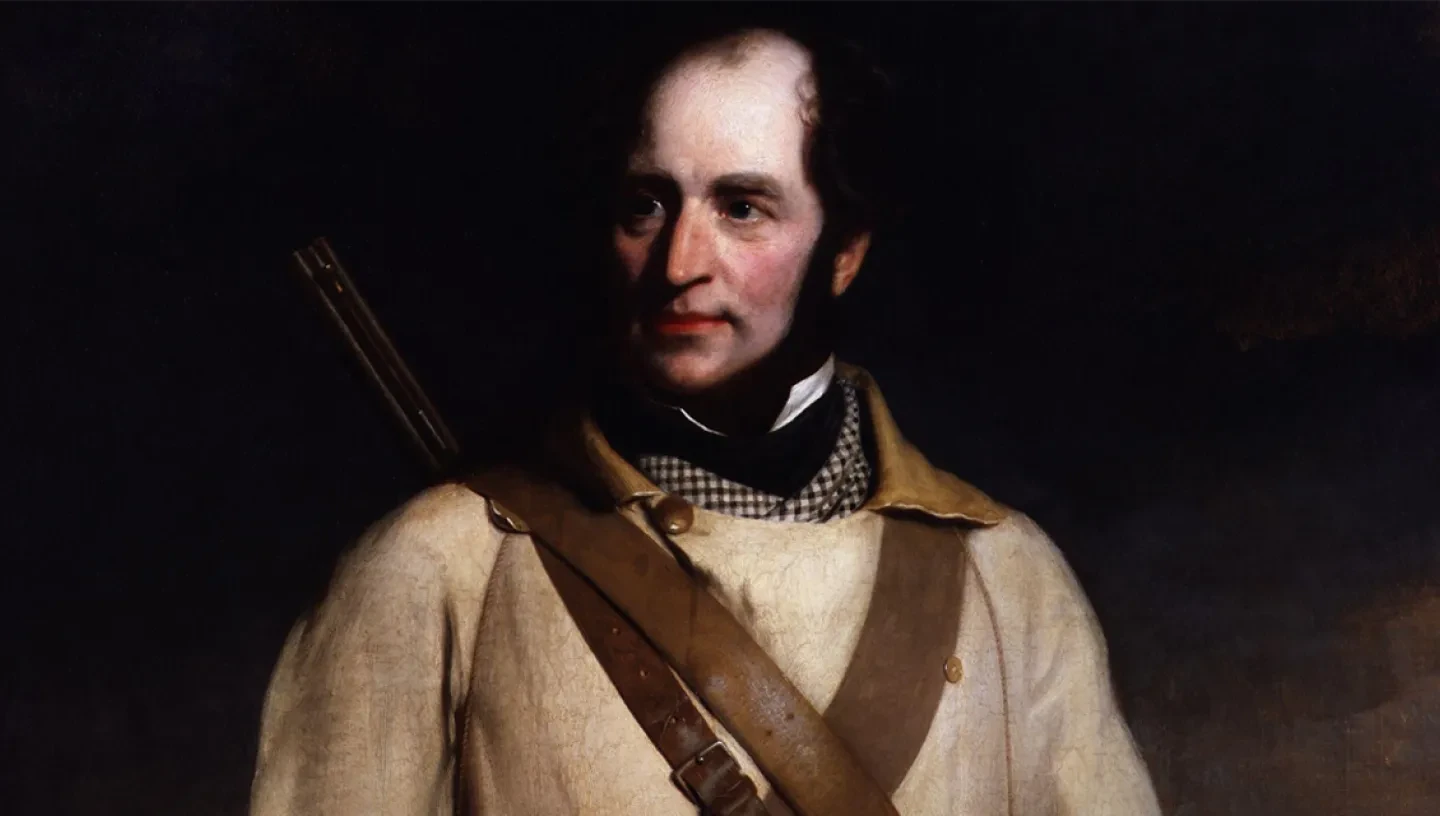
Robert McClure North-West Passage expedition 1850–54
In 1854 Robert McClure was credited as the first man to navigate the North-West Passage – although much of his journey was over ice, rather than water.
In 1850 Robert McClure led one of the many expeditions that went in search of explorer James Franklin. Franklin's ships had been trapped in the Arctic while looking for the North-West Passage, the seaway linking the Atlantic and Pacific Oceans. McClure is credited with being the first man to navigate the North-West Passage, although much of his journey was over ice, rather than by water.
McClure travelled on board the Investigator under the command of Captain Richard Collinson, who was on the Enterprise. The ships approached the search from the Pacific but became separated and McClure passed through the Bering Strait first. He carried on and discovered and named Prince of Wales Strait, between Banks Island and Victoria Island. It was here that the Investigator became frozen in for the winter.
Discovery of the Passage
During the winter, McClure went overland across Banks Island to a high vantage point on the north coast. It was here that the North-West Passage was discovered, as McClure’s party could clearly see Melville Island and the frozen waters of Melville Sound reached by the explorer William Edward Parry on his westward journey in 1820.
McClure decided to attempt a navigation of the Passage when the ice melted but never succeeded. In the summer of 1851 Prince of Wales Strait was still blocked to the north by ice, so he turned back, hoping to navigate around Banks Island. He reached the Bay of Mercy, which he named as it provided refuge from the ice which forced him to winter there. During this time, a sledge party made it to Melville Island and back, leaving a message in Winter Harbour.
Four winters in the Arctic
By spring 1852 the crew were suffering from malnutrition and on the brink of death. Help arrived from Lieutenant Bedford Pim who walked over the ice to the Investigator. He had come from the Resolute, which had found the message left at Winter Harbour.
McClure was keen to sail the Investigator back to England but was ordered to abandon it. McClure and crew then spent the winter of 1853 in the Arctic, where the Resolute became trapped in ice. In April 1854, McClure went west by sledge to Beechey Island where he joined the North Star, taking him back to England.
First to navigate the North-West Passage?
McClure was heralded as the first man to navigate the North-West Passage, although much of his journey had been across ice, not by water. He faced a court-martial for loss of the Investigator (a standard procedure) but was acquitted and awarded £10,000 for him and his men. In truth, it was Lieutenant Cresswell of the Investigator, not McClure, who travelled the passage first: Cresswell had returned to England the previous October on McClure’s ship.
It would be over 50 years before the North-West Passage was successfully navigated by water, by Roald Amundsen.